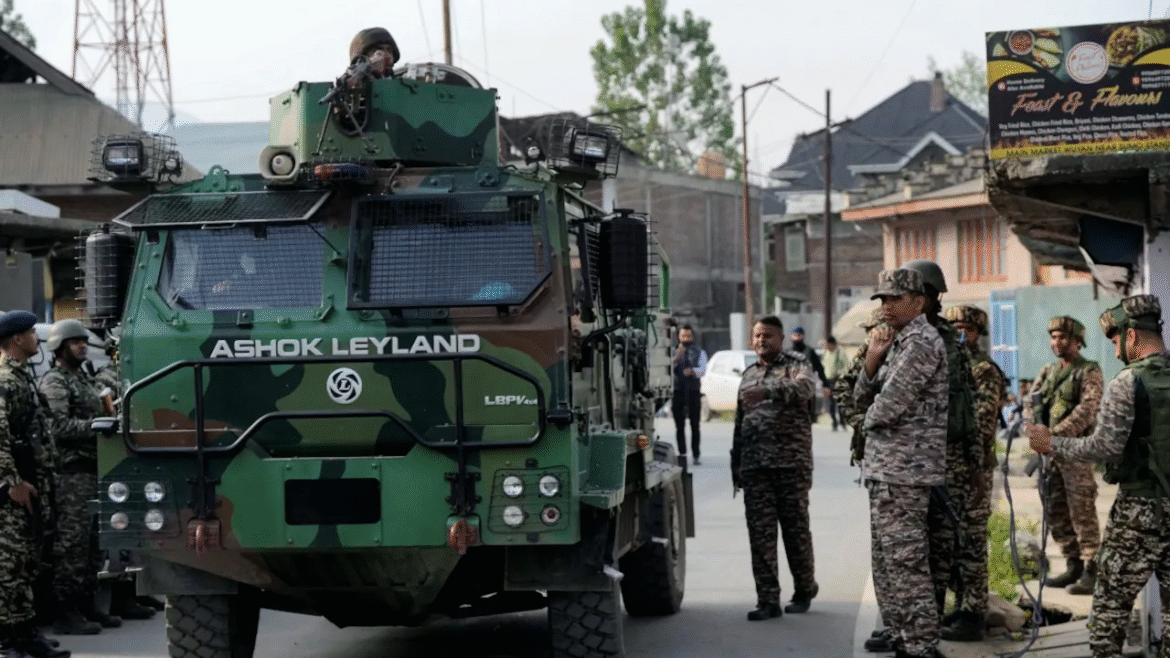AI Generated Summary
- In the aftermath of Operation Sindoor, India has delivered a pointed and measured response to two increasingly influential players on the global stage—China and Turkiye—both of whom aligned themselves with Pakistan during the recent four-day military confrontation.
- The April 22 massacre in Pahalgam, which claimed numerous Indian lives, prompted the Indian military to launch precision strikes on terrorist camps in Pakistani territory on May 7.
- At a time when global security architectures are already under immense strain, further militarization of South Asia serves no one’s interests—not even those of China and Turkiye.
In the aftermath of Operation Sindoor, India has delivered a pointed and measured response to two increasingly influential players on the global stage—China and Turkiye—both of whom aligned themselves with Pakistan during the recent four-day military confrontation.
The message from New Delhi, delivered through Ministry of External Affairs spokesperson Randhir Jaiswal, was as strategic as it was diplomatic: “Mutual trust, mutual respect and mutual sensitivity remain the basis of India-China relations.” In other words, global alliances cannot be sustained on rhetoric alone; actions speak louder than words, and India is watching closely.
India’s stern remarks came after credible reports suggested China had provided real-time satellite intelligence to Pakistan—allegedly enabling targeted drone strikes on Indian positions. More provocatively, Chinese media reports hinted that Beijing, in the wake of the clashes, offered Islamabad access to its most advanced aerial weapon: the J-20 fifth-generation stealth fighter jet. While the Chinese side remains officially tight-lipped, such developments, if confirmed, could mark a seismic shift in regional power dynamics.
Equally troubling is Turkiye’s deepening military cooperation with Pakistan. Jaiswal’s comments, directed at Ankara, carried unmistakable undertones of disappointment. India expects Turkiye to “strongly urge Pakistan to end its support for cross-border terrorism”—a clear indictment of Turkiye’s increasingly direct involvement. According to Indian security assessments, over 350 Turkish drones, including the battle-tested Bayraktar TB2s, and military operatives played an operational role in Pakistan’s retaliatory drone strikes. The support ranged from reconnaissance and tactical planning to kamikaze-style strikes against Indian forces.
For many, this represents a disturbing escalation. The April 22 massacre in Pahalgam, which claimed numerous Indian lives, prompted the Indian military to launch precision strikes on terrorist camps in Pakistani territory on May 7. Pakistan’s response, enabled by drone warfare and foreign collaboration, has now drawn in external players with strategic ambitions of their own—complicating an already volatile subcontinental equation.
The Stockholm International Peace Research Institute (SIPRI) recently confirmed these shifting allegiances in its report on global arms transfers. Between 2020 and 2024, 63% of China’s arms exports and 10% of Turkiye’s went to Pakistan. That’s not just trade; it’s strategic endorsement. Beijing is now the fourth-largest arms exporter globally, and its growing military-industrial ties with Islamabad are unmistakable.
This deeper axis between China, Turkiye, and Pakistan poses a serious challenge to India’s national security and regional stability. But more importantly, it tests the foundational principles of international diplomacy: trust, transparency, and respect for sovereignty.
By reiterating the need for “mutual sensitivities,” India has drawn a red line—one that both Beijing and Ankara would do well to heed. The subcontinent cannot afford to become a proving ground for drone diplomacy and proxy warfare. At a time when global security architectures are already under immense strain, further militarization of South Asia serves no one’s interests—not even those of China and Turkiye.
If New Delhi’s message is clear, its resolve is even clearer: cooperation cannot coexist with complicity in terrorism. For any meaningful partnership to thrive, whether strategic or economic, trust must not be treated as a disposable asset.
In the new great game of 21st-century geopolitics, India is reminding the world that principles still matter.




